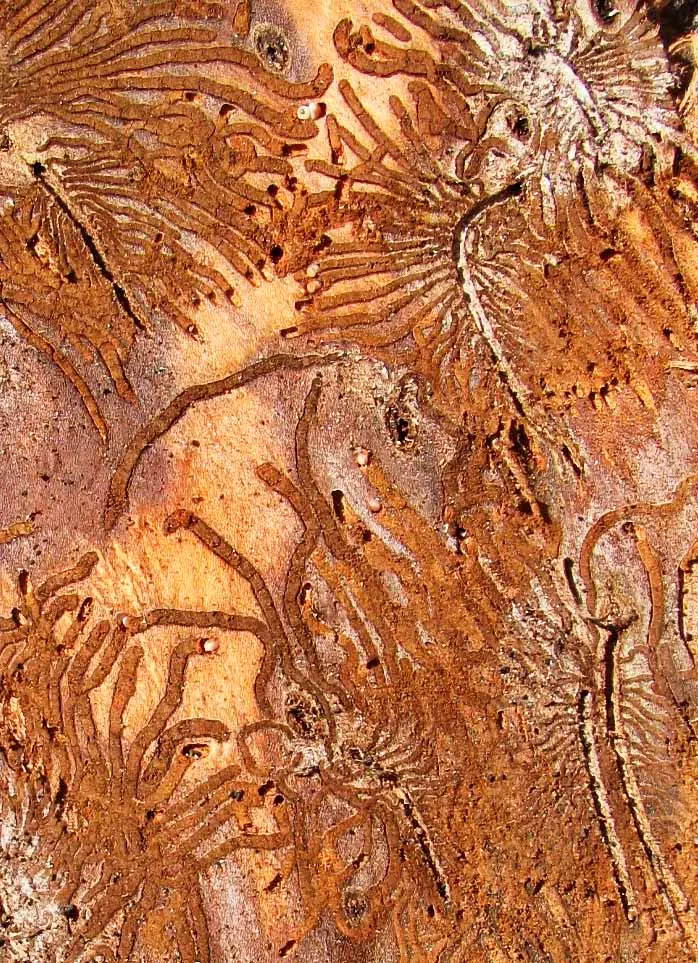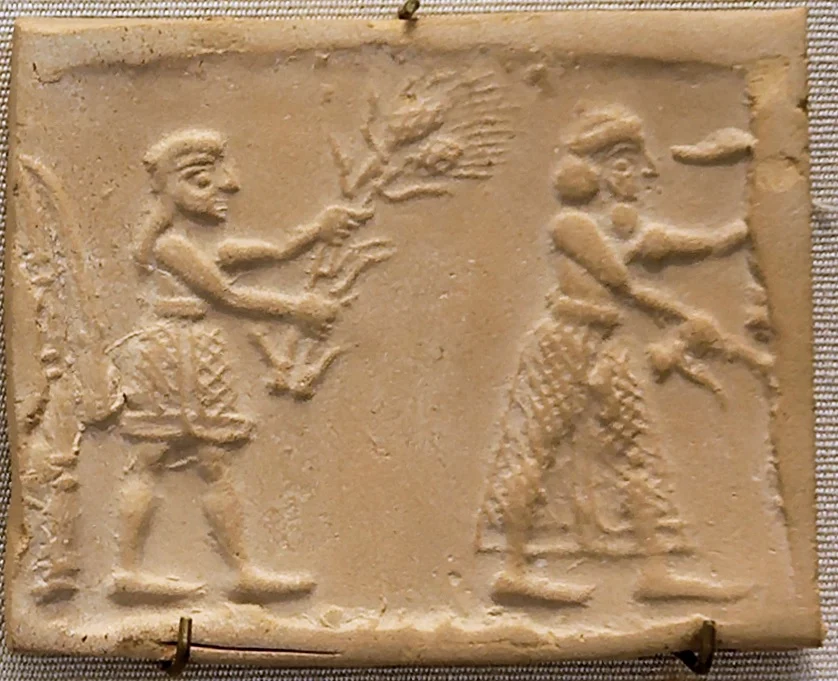Malevolent Designer News
How The Intelligent [sic] Designer Could Have Been Kinder, But Chose Not To Be
White-tailed deer, Odocoileus virginianus
Photo: Shutterstock

White-tailed deer,
Odocoileus virginianusImage: Pixabay
.
An open access paper published a couple of weeks ago in the journal
Genes should have set alarm bells ringing in Creationists circles, assuming anyone in Creationist circles reads peer-reviewed science and risks having their cherished superstitions spoilt with facts.
The paper was a report on the findings of a team of researchers from the University of Illinois at Urbana-Champaign, Illinois, USA into why, during a summer 2022 outbreak of the highly infectious viral disease of white-tailed deer,
Odocoileus virginianus, some deer remained unaffected while scores of others died within days of infection.
The disease, epizootic haemorrhagic disease (EHD), is caused by a double-stranded RNA virus, spread by a midge. There are outbreaks of this disease every 3-5 years.
The team sequenced the entire genome of the white-tailed deer for the first time and found variations in one particular gene associated with apparent immunity to EHD.
So, why should this concern Creationists?
Bearing in mind that Creationists insist their supposed intelligent [sic] designer is omniscient and so knows exactly what its designs will do when it designs them, if we buy into this evidence-free superstition, we have to believe:
- Creationist's intelligent [sic] designer designed the virus that causes EHD to kill white-tailed deer, and designed the midge to act as the vector for the disease to ensure the virus gets spread to kill new victims.
- It then gave some deer a modified gene which protects it from the virus it designed to kill them.
- It could have given all white-tailed deer this protective gene, but chose not to.
- Therefore the only conclusion is that it wanted most deer to be susceptible to the fatal disease it had designed to make them suffer and die.
As though that evidence of malevolence wasn't enough, what we have here is a simple example of how a mutant alle can give carriers of that mutation a significant advantage over carriers of the non-advantageous alle. It would take an exceptional degree of denialism to conclude that killing carriers of the non-protective allele while allowing carriers of the protective mutation to survive is not going to lead to an increase in the copies of that protective allele in the population gene pool over time.
In other words, what we have here is a perfect example of evolution by mutation and natural selection - the very same process that created the viral parasite in the first place. Evolution being defined by biological science as change in allele frequency in a population over time, not the childish Creationist parody of one species magically turning into another, unrelated species, in a single event.
Creationists need to explain why the patently obvious isn't true and why malevolent intent is a better explanation for these deer being killed by a virus, and Creationism's putative designer's apparent malevolent intent in creating the disease in the first place.
The research team's work was explained in a University of Illinois news release. As you read this, bear in mind that what the article is describing is what Creationists believe was created deliberately by their allegedly omniscient, omni-benevolent deity:
URBANA, Ill. – It was the height of summer 2022 when the calls started coming in. Scores of dead deer suddenly littered rural properties and park preserves, alarming the public and inconveniencing landowners. According to officials at the Urbana Park District, it was Epizootic Hemorrhagic Disease (EHD), a midge-borne viral illness that pops up in white-tailed deer populations around the state every few years. And when susceptible deer are infected, they die within days.
Now, University of Illinois scientists have found gene variants in deer associated with the animals’ susceptibility to EHD.
This is the first time this gene has been sequenced completely in white-tailed deer. This is important because without the sequences, there's no starting point to do any kind of research.
When the team sequenced TLR3 from EHD-infected and uninfected deer, they found dozens of variable sites in the DNA known as single-nucleotide polymorphisms (SNPs). Two of the SNPs were significantly more common in uninfected deer.
Because we found mutations in TLR3 more frequently in EHD-negative animals, we think deer with these mutations are less susceptible to EHD.
Yasuko Ishida, co-author
Department of Animal Sciences
University of Illinois, Urbana-Champaign, USA.
In many areas, outbreaks occur every 3-5 years, when environmental conditions favor the life cycle of midges that carry the virus. The midges spend their larval stages in mud under ponds and puddles where deer drink during drought conditions. As those water sources dry up, usually during late summer, the midges’ muddy habitat is exposed and the adult flies emerge to bite and infect deer. The cycle can be interrupted locally by a soaking rain or a cold snap, which is why outbreaks don’t happen every year.
The researchers emphasize that EHD is not transmissible to humans or pets through midge bites or consumption of infected deer meat.
Although there’s not much wildlife managers can do to disrupt the cycle and prevent outbreaks in natural habitats, the team says it’s still helpful to understand the genetic underpinnings of the disease. Theoretically, deer in captive herds could be sampled to characterize the level of vulnerability to EHD, and wild herds could be sampled during the hunting and EHD-outbreak seasons, informing managers and the public of future risk.
The value of this research is that it helps inform the public about EHD. It helps them to understand not only what the disease will look like, but potentially the severity of an outbreak in a particular area. Sometimes there's value in knowing what to expect.
It’s very complicated to respond to an outbreak of EHD because there are often large numbers of deer found dead near water. People don’t know what to do when that happens, but we encourage the public to report potential EHD outbreaks to their local IDNR wildlife biologist for the surveillance and future study of the disease.
Jacob Wessels, first author
Now a conservation police officer with the Illinois Department of Natural Resources
The article, “The Impact of Variation in the Toll-like Receptor 3 Gene on Epizootic Hemorrhagic Disease in Illinois Wild White-tailed Deer (Odocoileus virginianus),” is published in Genes [DOI: 10.3390/genes14020426].

Copyright: © 2023 The authors.
Published by MDPI, Basel, Switzerland. Open access.
(CC BY 4.0)More detail is provided in the team's open access paper in
Genes:
Abstract
Epizootic hemorrhagic disease (EHD) leads to high mortality in white-tailed deer (Odocoileus virginianus) and is caused by a double-stranded RNA (dsRNA) virus. Toll-like receptor 3 (TLR3) plays a role in host immune detection and response to dsRNA viruses. We, therefore, examined the role of genetic variation within the TLR3 gene in EHD among 84 Illinois wild white-tailed deer (26 EHD-positive deer and 58 EHD-negative controls). The entire coding region of the TLR3 gene was sequenced: 2715 base pairs encoding 904 amino acids. We identified 85 haplotypes with 77 single nucleotide polymorphisms (SNPs), of which 45 were synonymous mutations and 32 were non-synonymous. Two non-synonymous SNPs differed significantly in frequency between EHD-positive and EHD-negative deer. In the EHD-positive deer, phenylalanine was relatively less likely to be encoded at codon positions 59 and 116, whereas leucine and serine (respectively) were detected less frequently in EHD-negative deer. Both amino acid substitutions were predicted to impact protein structure or function. Understanding associations between TLR3 polymorphisms and EHD provides insights into the role of host genetics in outbreaks of EHD in deer, which may allow wildlife agencies to better understand the severity of outbreaks.
Wessels JE, Ishida Y, Rivera NA, Stirewalt SL, Brown WM, Novakofski JE, Roca AL, Mateus-Pinilla NE.
The Impact of Variation in the Toll-like Receptor 3 Gene on Epizootic Hemorrhagic Disease in Illinois Wild White-Tailed Deer (Odocoileus virginianus).
Genes. 2023; 14(2):426. https://doi.org/10.3390/genes14020426

Copyright: © 2023 The authors.
Published by MDPI, Basel, Switzerland. Open access
Reprinted under a
Creative Commons Attribution 4.0 International license (CC BY 4.0)
These examples of how the childish Creationist notion of intelligent [sic] design simply makes no sense at all, are almost daily occurrences in biological science, as are the examples of evolution in progress that we see in this example of natural selection favouring immunity to a viral parasite. The basic problem with Creationism and Creationists is that facts and deductive logic are irrelevant, otherwise there wouldn’t be Creationism and Creationists.
The psychology needed to maintain a superstition despite the overwhelming evidence against it must amount to a mental disorder that can only be accounted for by intensive mental abuse in childhood that gives rise to a mind-numbing acute anxiety disorder, or psychotic theophobia. Creationism and the wilful ignorance and science denial that it requires are not normal psychological states.
To inflict this mental disorder on the vulnerable minds of children, reinforced by threats of eternal torture, is a form of coercive child abuse. As someone once said, there are good people who do good things and bad people who do bad thing, but with religion, good people can do bad things believing them to be good. Inflicting Creationism on children is a case in point.






























